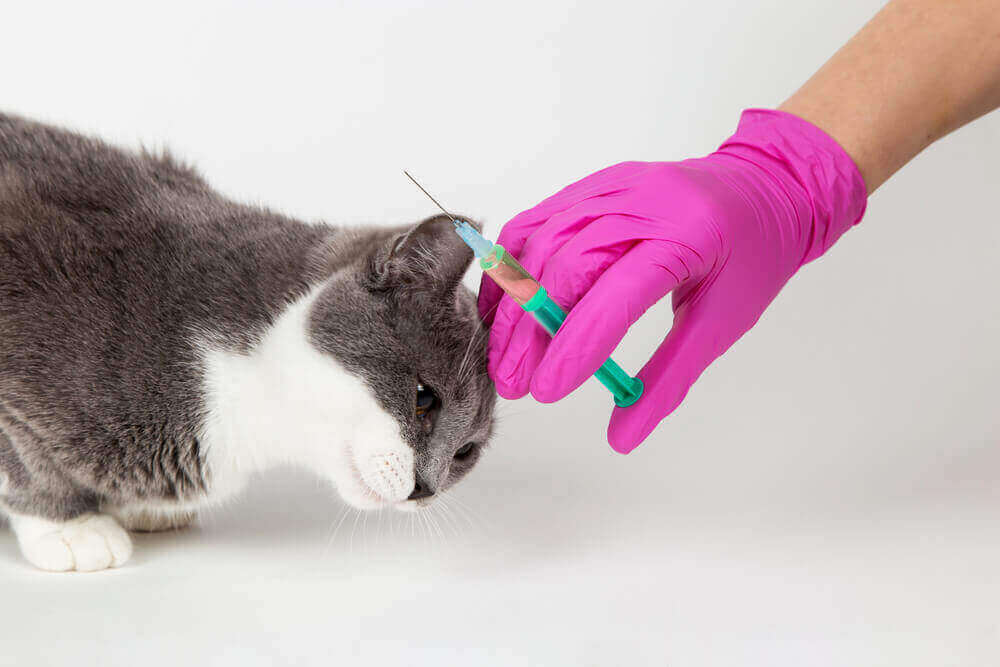
WHY IS IT IMPORTANT TO VACCINATE YOUR CATS AND DOGS?
Vaccination is as important in animals as they are for human health. Proper vaccination will boost your pet animal’s immunity and help him/her to fight against a variety of illnesses and diseases. Just like children need vaccination to protect them against infectious diseases, animal vaccination at the proper time is vital for their proper health. Adult dogs and cats are prone to a large number of contagious diseases like rabies and distemper. They are also susceptible to a vast number of respiratory tract disorders.
Some of the common infectious diseases in cats and dogs include:
- Canine distemper
- Kennel cough
- Leptospirosis
- Rabies
- Feline leukaemia
- Feline immune deficiency
- Diabetes
- Ringworm
How often do you need to vaccinate your pet?
The frequency of animal vaccinations is just as important as vaccination itself. Pet parents must be aware of the number of times they must take get their pet vaccinated. As a rule of thumb, puppies should start getting vaccinations as soon as they are 6 to 8 weeks old. They also require vaccinations and regular vet check-ups in three weeks gap at least until they are three years old. In the case of cats, kittens can start getting vaccinations around the same age as puppies. There are three vaccinations for cats in the gap of three weeks until they are 3 to 4 years old. Regular check-ups are mandatory in addition to that. Some pet vaccinations like rabies are mandatory to be administered periodically. Vaccinating dogs and cats need prior health assessments to ensure their safety.
What are the recommended vaccinations?
The recommended animal vaccinations differ on the type of pet, their lifestyle and their hereditary. You must consult a certified veterinarian to determine the best vaccinations for your pet. This may also depend on the risk factors such as outdoor exposure, the place of living etc. Your vet can analyse the pet vaccination requirements based on the daily activities and travel habits of your cat or dog. While vaccinating dogs, remember that certain canine vaccinations can only be administered depending on the dog’s medical history. The types of vaccine also vary depending on the risk of transmission and the significance of disease. At the next vet appointment, make sure that you deliver a detailed lifestyle report of your cat or dog
Risks and side effects of animal vaccinations
There can be some side effects and negative impacts for animal vaccinations, but none strong enough for any permanent damage. Your pet may show adverse reactions to some vaccines. That is why it is important to monitor them right after the vaccination. Your cat or dog can experience symptoms like fever, swelling or vomiting. Usually the symptoms are short-lived and temporary. If they persist for a long time or are severe in nature, take your pet to the nearest vet immediately. While mild symptoms can be ignored, it is important to keep an eye out for any serious reactions.
To wrap up
Proper pet vaccinations are necessary to keep your pet happy and healthy. Just like in the case of humans, animal immunization will help animals fight against various contagious and infectious diseases.
Recent Posts
- HOW TO PREVENT HAIRBALL ISSUES AND VOMITING IN CATS
- Dental pain in cats: signs, remedies and common dental problems
- Benefits of mobile pets grooming over salons: How to choose the best mobile grooming service in Sharjah?
- Smelly dog? Here are a few tips to remember
- TIPS TO KEEP YOUR PET HEALTH AND PHYSICAL ACTIVITY
Recent Comments